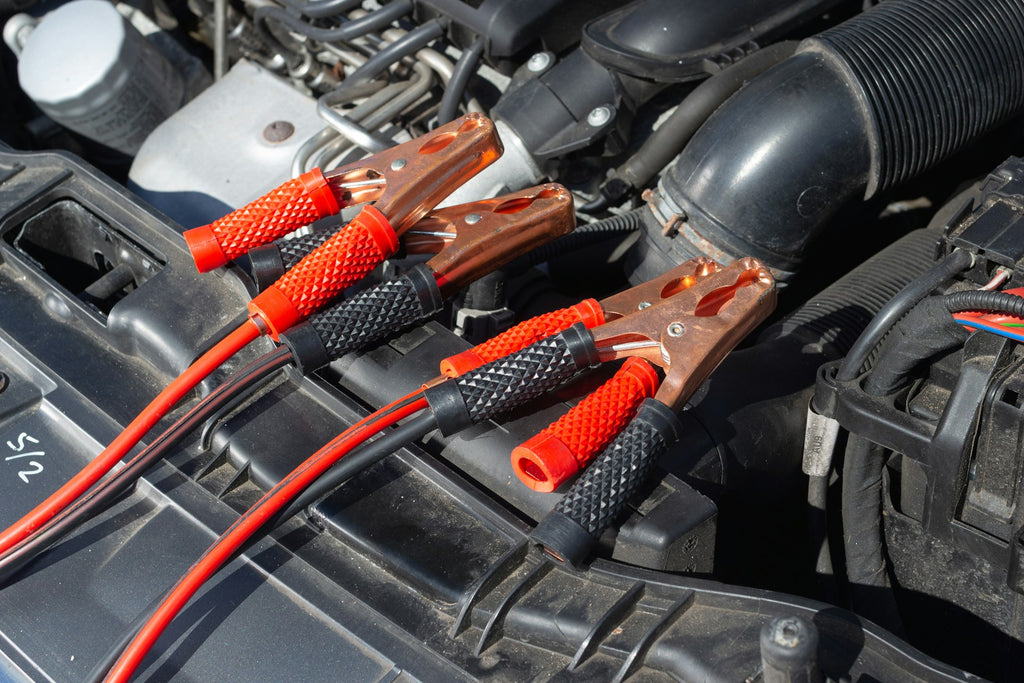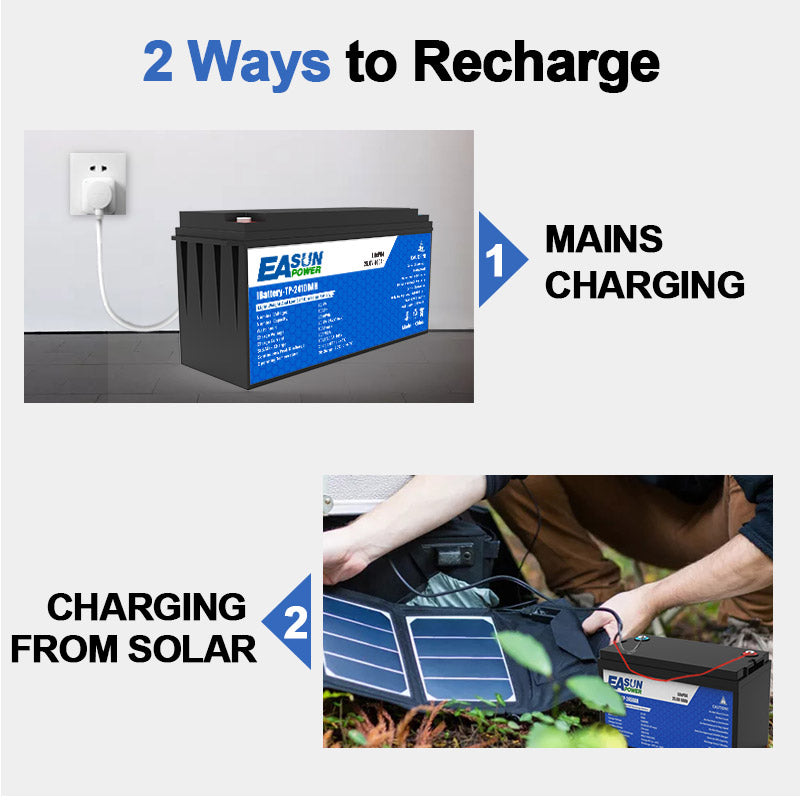
Can I Use a Car Battery to Power My Solar Inverter?
As homeowners in Europe increasingly turn to solar power as an alternative energy source, questions about component compatibility emerge. Can a car battery effectively power a solar inverter? Read on to find out:
Car Battery vs. Solar Inverter Battery
First stop, let's dissect the differences between a car battery and a solar inverter battery:
|
Aspect in Comparison |
Car Battery |
Solar Inverter Battery |
|
Design and Composition |
Lead-acid based, optimized for short bursts of power |
Lead-acid or lithium-ion, designed for steady power output |
|
Usage Patterns |
Designed for starting vehicle engines |
Intended for storing and providing continuous power |
|
Cycle Life |
Typically 200-300 cycles |
500-3000 cycles depending on technology and maintenance |
|
Depth of Discharge (DOD) |
Shallow discharges, not suitable for deep cycling |
Deep discharges up to 80% of capacity |
|
Capacity |
Lower capacity compared to deep-cycle batteries |
Higher capacity for prolonged use |
|
Charging Efficiency |
High charging efficiency |
Varies based on battery chemistry and charging method |
|
Maintenance |
Requires minimal maintenance for vehicle use |
Regular maintenance to optimize lifespan and performance |
|
Cost |
Relatively lower cost due to mass production |
Higher initial cost but better long-term value |
|
Safety Features |
Limited safety features |
Equipped with safety features for deep cycling and storage |
|
Recommended Use |
Starting vehicle engines |
Storing solar energy for household use |
Is a Car Battery Compatible With a Solar Inverter?
While it's technically possible to use a car battery with a solar inverter, it's not recommended for several reasons:
- Capacity and Lifespan: Car batteries, primarily lead-acid based, boast lower capacity and shorter lifespans compared to deep-cycle batteries intended for solar applications. Deep-cycle batteries are engineered to endure the rigorous demands of solar setups, including deep discharges and prolonged cycling. Utilizing a car battery in a solar system risks premature failure and reduced efficiency due to its inability to withstand such demands.
- Performance: Car batteries may struggle to meet the energy demands of a solar inverter system, particularly during periods of peak consumption. Their design, optimized for short bursts of power in vehicle start-ups, may not deliver the sustained output required by solar applications. This inadequacy could lead to unreliable performance and compromised energy delivery, especially during extended discharge cycles.
- Safety Concerns: Car batteries lack essential safety features crucial for solar applications, such as overcharge protection and deep discharge prevention. The absence of these safeguards poses significant safety risks and potential damage to both the battery and connected devices. Safety is paramount in solar energy systems, and opting for a car battery compromises this critical aspect.
- Optimized Solutions: Dedicated deep-cycle batteries specifically engineered for solar applications offer superior performance, longevity, and safety. These batteries undergo meticulous design and testing to ensure reliable operation within solar energy systems. Investing in a purpose-built solar inverter battery guarantees optimal performance and provides peace of mind regarding system safety and efficiency.

Can I Use a Car Battery Temporarily for a Solar Inverter?
While technically possible, it's not recommended due to the differences in design and performance. Using a car battery as a temporary solution may compromise the efficiency and safety of your solar energy system.
Can I Modify a Car Battery to Make It Suitable for a Solar Inverter?
Modifying a car battery for use in a solar energy system is not advisable. Car batteries lack the necessary design and features required for deep cycling and prolonged use in solar applications. It's safer and more effective to invest in a purpose-built solar inverter battery.
Are There Any Alternatives to Using a Car Battery With a Solar Inverter?
Yes, there are alternative options specifically designed for solar applications. Deep-cycle batteries, including lead-acid and lithium-ion variants, are optimized to withstand the demands of solar energy systems. These batteries offer higher capacity, longer lifespan, and enhanced safety features compared to car batteries, making them the preferred choice for powering solar inverters.

Conclusion
While it may be tempting to repurpose a car battery for use in a solar inverter system, it's not advisable due to capacity, performance, and safety concerns. Solar energy systems require deep-cycle batteries specifically designed for the task to ensure reliable operation, longevity, and safety. By investing in the right equipment, homeowners can maximize the benefits of solar power while minimizing risks and maintenance issues.

Een opmerking achterlaten